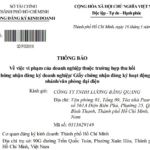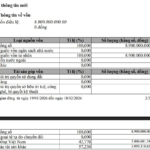The draft decree detailing the administrative sanctions for land-related violations must closely follow the principles and regulations set forth in the Land Law and the Law on Handling Administrative Violations. It should be comprehensive, leaving no room for omission of any violations or related entities.

Meeting overview. Photo: VGP
|
According to a report by the Ministry of Natural Resources and Environment (the drafting agency), the decree draft specifies 22 groups of land-related administrative violations. It builds on previous regulations and makes amendments and supplements to align with the practical situation and the Land Law 2024.
Specifically, the drafting agency has increased the fines and added penalties and remedial measures for the group of acts that use land for the wrong purposes; land destruction; land encroachment; and failure to continuously use land for annual and perennial crops, aquaculture, and forestry.
Penalties have also been enhanced for violations related to land use papers and documents; provision of land information related to inspection, examination, and evidence collection for land dispute resolution; and non-compliance with conditions for service activities in the land sector.
Notably, the decree draft has removed penalty provisions for certain acts falling under the scope of the Law on Cultivation and the Law on Real Estate Business. Provisions related to sanctioning authority have been reviewed to ensure alignment with the Law on Handling Administrative Violations, the Law on Inspection, and other relevant laws, thereby avoiding overlap in sanctioning administrative violations. The draft decree also supplements the authority of the Chief Inspector of the province and the Director of the Department of Planning and Land Resource Development.
The Ministry of Natural Resources and Environment proposes that households and individuals who have been using land before October 15, 1993, and have not received any violation handling documents from state agencies with competent authority before the effective date of the Land Law shall not be subject to the provisions of this decree.
In cases where the transferring party of the land use right violates land-related regulations and is an organization that has been dissolved or bankrupt, or an individual who has passed away without heirs or has moved to an unknown address and does not fall under the case of state retrieval, the receiving party shall not be subject to penalties but only remedial measures.
Leaving no room for omission of violations or related entities
Concluding the meeting, the Deputy Prime Minister emphasized that the decree must closely follow the principles and regulations stipulated by the Land Law and the Law on Handling Administrative Violations. It should be comprehensive, leaving no room for omission of any violations or related entities.
Analyzing the importance of accurately identifying the violation, the Deputy Prime Minister pointed out that a single violation could be constituted by multiple previous violations, involving entities other than the land user, such as managing agencies, consulting units, and entities providing training and professional practice certificates in the land sector.
The drafting agency must go the extra mile to identify the violation and devise appropriate sanctions that match the practical situation, thereby helping local authorities address challenges and obstacles in handling administrative violations in the land sector.

The Deputy Prime Minister shares her opinion at the meeting. Photo: VGP
|
“The decree should be designed to ensure that authorities at all levels have the responsibility to detect, handle, and prevent land-related violations,” said the Deputy Prime Minister. She also requested the addition of provisions on the responsibilities of managing agencies and sanctions for violations related to land along rivers, coasts, alluvial land, and land reclamation.
The Deputy Prime Minister also gave her opinion on applying transitional provisions for historical violations, adhering to the Land Law and the Law on Handling Administrative Violations. She emphasized that it is essential not only to impose penalties but also to take remedial measures to protect the interests of land users. She provided directions on sanctioning authority and supplementary sanctions, remedial measures, handling violations across multiple land plots in a project spanning one or more administrative units, delegating local authorities to specify land destruction acts and handling methods, and the responsibilities of state agencies in implementing land management measures, consulting activities, training, and issuing professional practice certificates in the land sector.
Deputy Minister of Natural Resources: There will be 9 decrees implementing the provisions of the Land Law.
Deputy Minister of Natural Resources and Environment (TN&MT) Le Minh Ngan has revealed that there are expected to be 9 decrees issued to specify the details of the Land Law (amended).
Why businesses aren’t thrilled about paying annual rent?
According to the recently passed Land Law amendment, businesses that lease land on a lump sum basis can now switch to annual lease payment, but they are not enthusiastic about this regulation.




















